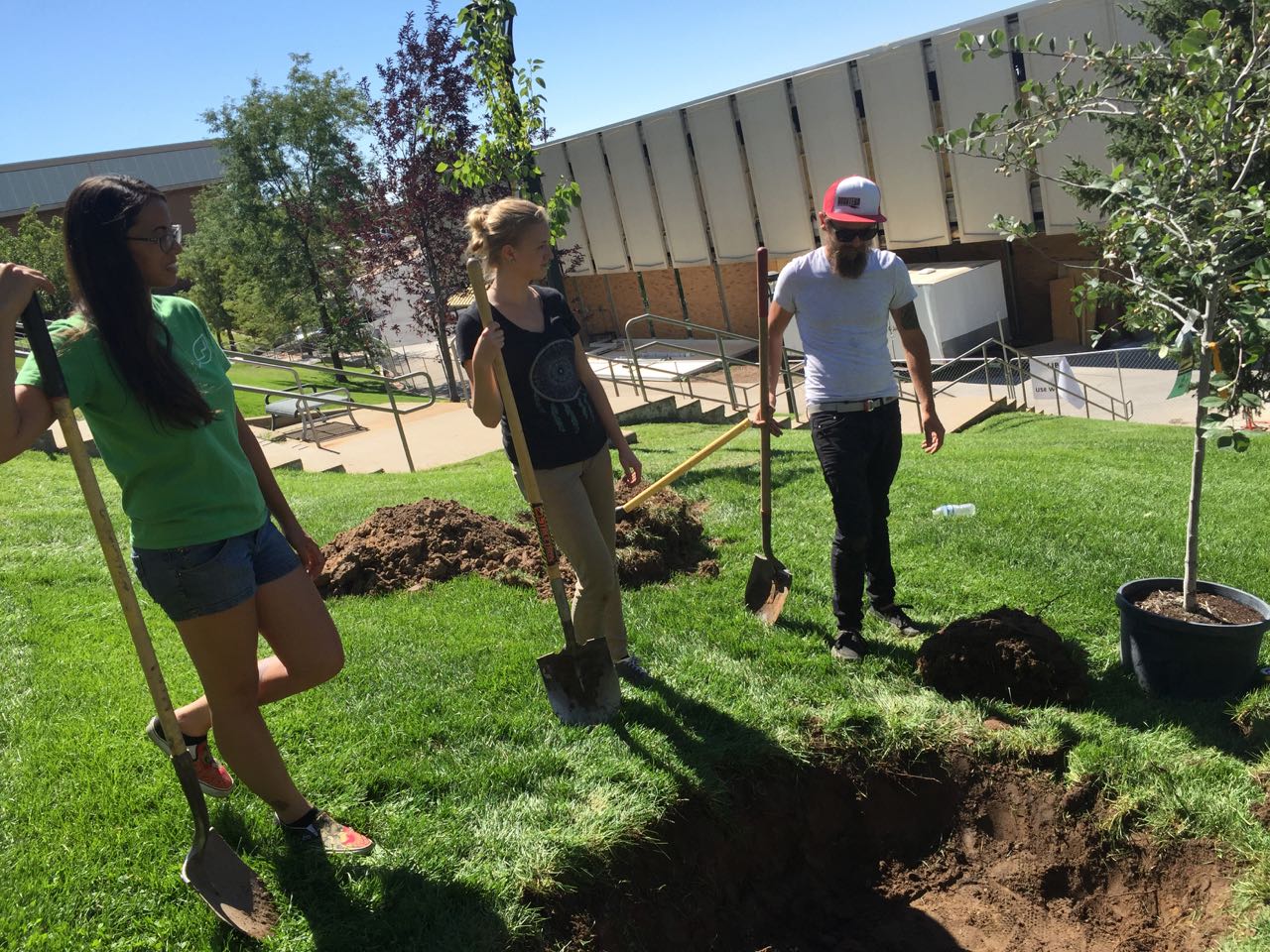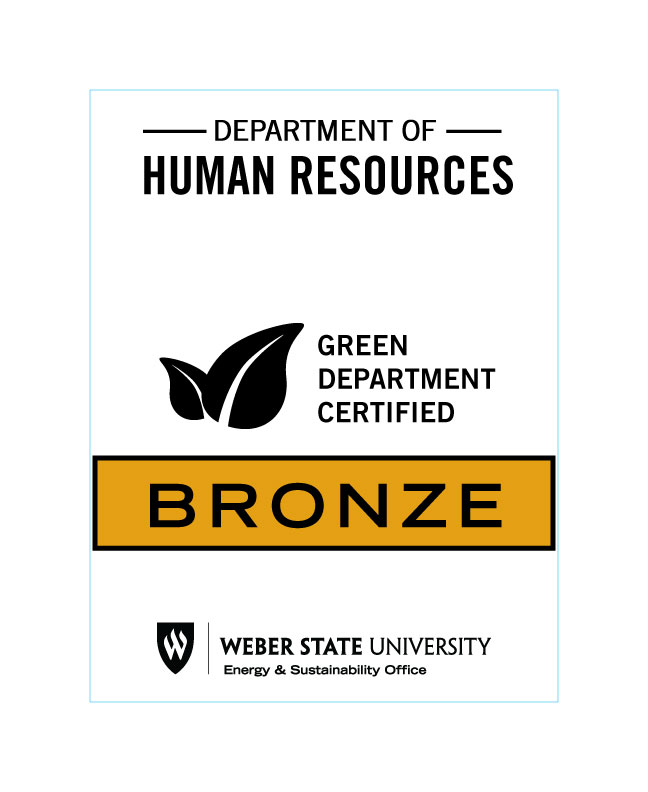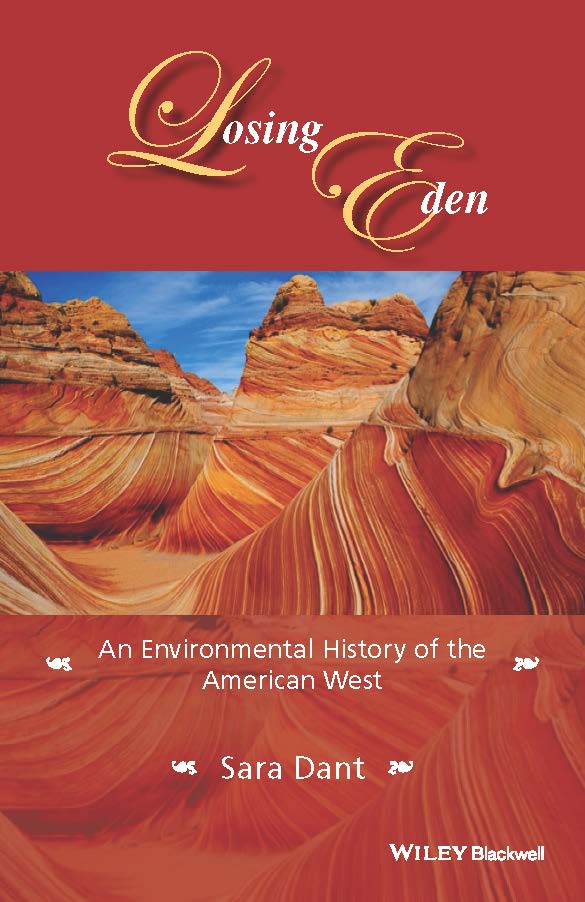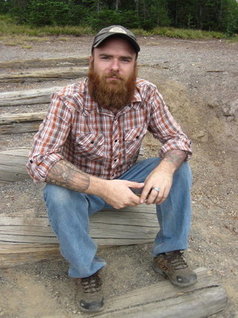
Welcome to the October 2016 Newsletter
Drive Electric Northern Utah Launches This Fall
Weber State’s Sustainability Practices and Research Center (SPARC) and the Energy and Sustainability Office (ESO) are encouraging drivers to go electric this fall. In a collaborative effort with Utah Clean Energy and Utah State University, Weber State’s sustainability organizations launched the Drive Electric Northern Utah (DENU) program on October 17th. DENU will reduce the cost of purchasing or leasing plug-in electric vehicles (EVs) through a pre-negotiated price purchase program.
Driving electric leads to better air quality and fewer climate-damaging pollutants. EVs have no tail pipe emissions and thus can help clear the air in Northern Utah. According to a 2013 analysis conducted by SWEEP and Utah Clean Energy, all-electric vehicles produce 99% lower emissions of volatile organic compounds (VOCs), 95% lower sulfur dioxide (SO2) emissions, and 76% lower nitrogen oxide (NOx) emissions as compared to a new gasoline vehicle. Plug-in hybrid electric vehicles reduce emissions significantly as well.
EV drivers reap the benefits of reduced fuel and vehicle maintenance costs. Electricity is much less expensive than gas, especially when produced from a rooftop solar energy system. On average, it costs about half as much to power an EV as it does to fuel a traditional gasoline-powered vehicle. In addition, EVs have no internal combustion engine, so drivers can say good-bye to oil changes and other costly maintenance requirements.
For people with long commutes, the program will offer plug-in hybrid electric vehicles (PHEVs). PHEVs can operate solely on electricity within a certain range and then switch to an efficient hybrid engine for the trip’s duration.
DENU launched on October 17 and runs through December 3. A workshops will provide information on cost savings and benefits and give attendees an opportunity to talk with current EV drivers:
- Tuesday November 1, from 5:30-7:00 p.m.
WSU, Main Campus,
Shepherd Union, Ballroom C.
More details on the EV choices and pricing is at www.utahev.org/northernutah.
Geothermal wells deepen Weber State's sustainability efforts
OGDEN — Weber State University has adopted recycling bins, solar panels and electric vehicles as part of its sustainability efforts. Now it’s going underground to tap geothermal power.
Rigs are currently drilling more than 200 deep-water wells in the parking lot north of the Ogden campus’s Stewart Stadium. The wells will help regulate temperatures in the decades-old steam and chilled water system used to heat and cool every building on campus. Circulating that water underground warms or cools it back to 57 degrees, so it takes less energy to bring buildings to comfortable temperatures.
The geothermal project is part of the university’s pledge to become carbon neutral by 2050.
Read the full article on Standard.net
Environmental Ambassadors’ Semi-Annual Tree Planting
 Following tradition, the Environmental Ambassadors started off the semester with the Semi-Annual Tree Planting opening social. With the help of WSU’s landscaping crew, the Ambassadors successfully planted ten new trees on campus. Everyone put in a great amount of energy that day! The Croft Arboretum was the selected site, as last year a strong windstorm blew down a couple of large Catalpa trees in this area that were estimated to be around 60 years old. The hope is that these new trees grow to provide shade and comfort to the WSU populace just like the trees lost.
Following tradition, the Environmental Ambassadors started off the semester with the Semi-Annual Tree Planting opening social. With the help of WSU’s landscaping crew, the Ambassadors successfully planted ten new trees on campus. Everyone put in a great amount of energy that day! The Croft Arboretum was the selected site, as last year a strong windstorm blew down a couple of large Catalpa trees in this area that were estimated to be around 60 years old. The hope is that these new trees grow to provide shade and comfort to the WSU populace just like the trees lost.
Introducing the Environmental Ambassador Certification Program!
The Environmental Ambassadors launched the EA certification program as a way to incentivize students to integrate sustainability into their lifestyle and education. The program asks students to complete certain sustainability-related tasks to obtain points and ultimately earn cash rewards. The tasks are organized into five categories: education, event participation, community service, individual action, and service project. This program will act as a guide with the Ambassadors offering mentorship for students interested in a path toward sustainability.
The full detailed program can be read at https://www.weber.edu/sustainability/EA.html
Human Resources is Green-Department Certified!
T he Energy & Sustainability Office is excited to announce that Human Resources is WSU’s newest and second certified Green Department. The department achieved a bronze rating. A few of their accomplishments to achieve this rating include:
he Energy & Sustainability Office is excited to announce that Human Resources is WSU’s newest and second certified Green Department. The department achieved a bronze rating. A few of their accomplishments to achieve this rating include:
- Converted to using 100% recycled content paper
- Converted to using other green products (pens, markers, paper towels, etc.)
- Implemented a glass recycling program for the entire Miller Administration building
- Became the first department to voluntarily implement the Tiny Trash Program (see below)
The purpose of the Green Department Program is to get WSU offices and departments involved in the work of making the entire University more sustainable and carbon neutral. The program is voluntary and competitive. Departments that choose to participate assemble a green team and work to acquire points by making their departments more sustainable. Depending on the number of points achieved, the department may be certified as bronze, silver, gold, or green.
For information or to get involved, please contact Jennifer Bodine at jenniferbodine@weber.edu.
Tiny Trash!
.jpg) The Tiny Trash Program has been shown to minimize waste and maximize recycling at other universities nationwide. Over 85% of the waste produced by the WSU campus is recyclable; your tiny trash can serve as a reminder that pretty much all of the office waste you produce can be placed in your recycling bin.
The Tiny Trash Program has been shown to minimize waste and maximize recycling at other universities nationwide. Over 85% of the waste produced by the WSU campus is recyclable; your tiny trash can serve as a reminder that pretty much all of the office waste you produce can be placed in your recycling bin.
Benefits of the Tiny Trash Program:
- Saves office space and fosters awareness.
- Decreases waste and the amount landfilled.
- Saves money by reducing the use of plastic liners.
- Will help WSU continue to be a national leader in campus sustainability practices.
If you are interested in implementing the Tiny Trash Program in your department, please contact Jennifer Bodine at jenniferbodine@weber.edu.
Sustainability Faculty Highlight
 A wonderful new book, Losing Eden: An Environmental History of the West, came out from Wiley/Blackwell this September by WSU Professor of History Sara Dant. Her work highlights the complex interactions among people, the environment, and the economy in the American West, focusing particularly on issues of sustainability. As the publisher’s press release describes:
A wonderful new book, Losing Eden: An Environmental History of the West, came out from Wiley/Blackwell this September by WSU Professor of History Sara Dant. Her work highlights the complex interactions among people, the environment, and the economy in the American West, focusing particularly on issues of sustainability. As the publisher’s press release describes:
This is the first work to use the lens of environmental history to examine the influence of the Beringia migration, Columbian Exchange, federal territorial acquisition, post WWII expansion, resource exploitation, and climate change on the region.
Losing Eden recognizes the essential role of the natural world in the history of the American West and provides important analysis on the continually evolving relationship between the land and its inhabitants. As westerners transitioned from subsistence to market economies, and wrestled with frontier and conservation-versus-preservation ideologies, they ultimately arrived at a present characterized by climate change and sustainability challenges.
Shades of Green is back!
Want to learn a little something about sustainability or view an issue you know well from another perspective? Join in each Tuesday at noon to hear great presentations and engage in the discussions.
SPARC, in conjunction with the Geography Department, is again offering the innovative multi-disciplinary course/lunch and learn, Shades of Green: Perspectives on Sustainability for People, Environment and Economic Prosperity this semester. Faculty members from a wide variety of disciplines will present on a new sustainability topic each week. All WSU faculty, staff, and students are welcome to drop in to any presentation. Class meets in the Social Science Building, room 390, on Tuesdays from 12:00 to 1:15 p.m.
 WSU Hires First Fulltime Water Conservation Specialist
WSU Hires First Fulltime Water Conservation Specialist
The Energy & Sustainability Office welcomes Drew Hodge, WSU’s first fulltime water conservation specialist, to the team! Drew has worked in the Energy & Sustainability Office for just over a year as an energy upgrade technician. Having earned his Bachelor of Science of Geography with an environmental emphasis from Weber in April 2016, Drew specializes in sustainability planning. He was recognized as a Geography Department honor graduate and as an outstanding graduate by the College of Social and Behavioral Sciences. For his senior capstone project, Drew conducted a survey of public opinion on Utah public lands and presented his work at both the 2016 American Association of Geographers National Conference and the 2016 WSU Undergraduate Research Symposium. His work was published in Ergo, Weber’s undergraduate research journal. He loves to spend time outdoors with his wife, Cori, and two sons, Silas and Zakk. Drew is passionate about pursuing sustainability at the economic, social, and environmental levels and looks forward
Great Results from WSU Service Learning Trip to Peru in 2016!
Julie Rich (geography) Project Peru director, Jeremy Farner (DET) and Mike Moon (CCEL) Project advisors, traveled with twenty-eight WSU students to Chiclayo, Peru from 8-29 May 2016, to undertake four impactful projects. Project one involved constructing a Women's Training Center that is now being used by approximately 200 impoverished women who received ‘Culinary Arts’ training through Juan Mejia Baca University as part of a local outreach program. Now that these women have their certificates of completion, the goal is to use the newly constructed women’s center for business skills training, which will lead to a micro-loan program, and a better income for disadvantaged women and their families.
The second project involved constructing and reopening a community preschool. The preschool had been closed for many years due to a collapsing roof and poorly constructed classrooms. The WSU team tore down the dilapidated structure and rebuilt a new, structurally sound building. Now, this community preschool is re-opened and children, once again, have a safe and thriving learning environment.
The third project focused on bringing clean water to a Peruvian community that currently did not have access. The WSU team dug a 0.5 km trench from the village, laid the pipe, and connected to an underground culinary water source. Four public spigots within the village were constructed and connected to the waterline. This project is alleviating the issue of water-borne diseases for this community by providing a clean, reliable water source. The fourth project focused on education with WSU students teaching Peruvian children English, art, health/hygiene, and sports.
The Peru Project is the third international endeavor completed under the auspices of the
Global Community Engaged Learning Program (GCEL) that provides students with a life changing, global engagement experience. The GCEL mission is to instill confidence in our students to exact positive change in the world and to bring them to an awakening of the power one person can have.
For more information on pervious GCEL projects and the upcoming (May 2017) Africa Project in Mozambique (construction of a secondary school library and classrooms) please contact: Julie Rich jrich@weber.edu, tel: 801-626-6209



